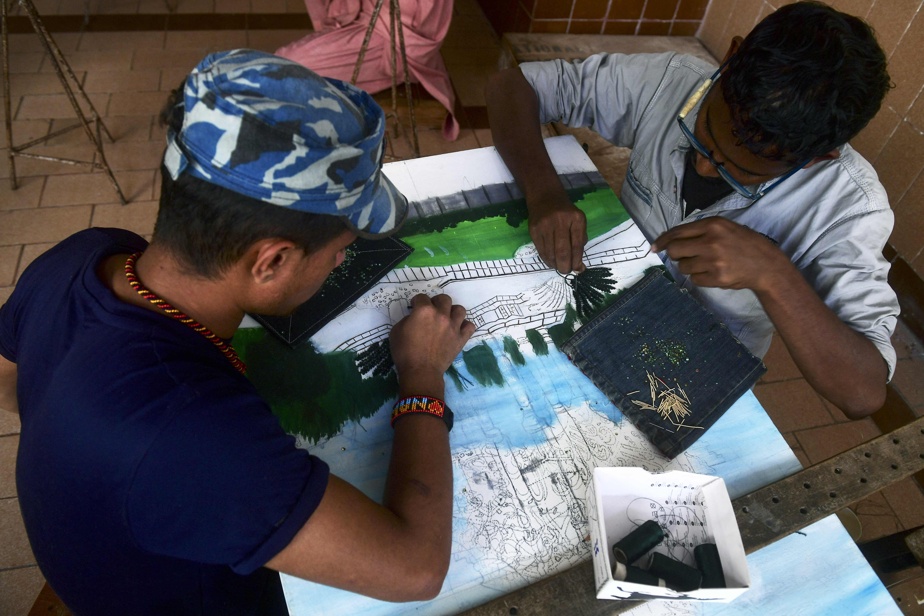(Karachi) Karachi’s colonial-era prison is decorated with murals of rural life in Pakistan, works of prisoners who learned to paint behind bars.
Thanks to a reintegration program through drawing or music, convicted murderers or kidnappers have been able to sell their works for several thousand dollars at exhibitions, prison officials said.
“Before I went to prison, it was another life, totally immature and without responsibility,” Mohammad Ijaz told AFP from the prison workshop.
“But since then I have understood the meaning of life. They taught us that existence is full of colors and that colors speak for themselves.”
Mr. Ijaz, who refuses to say what crime landed him in prison, has served half of his 25-year sentence.
Despite his seclusion, he earned large sums of money from his paintings of horses, which allowed him to finance his mother’s pilgrimage to Mecca and his sister’s wedding.
“At first my family didn’t want to believe me when I said I had become an artist,” says the 42-year-old prisoner, who now teaches painting to fellow inmates. “When they saw our paintings at the exhibition, they were happy.”
This artistic program was launched in 2007 in Karachi Central Prison, targeting long-term prisoners and those on death row.
Prisoners can also learn foreign languages such as Arabic, English or Chinese, as well as embroidery or other sewing work.
“Bringing them to constructive goals makes them more sociable,” Ammad Chandio, one of the prison officials, explains to AFP. “It allows them to reflect on their past, the crime or misdemeanor they committed.”
“Every work produced inside the prison is the property of the inmates, as is any income that can be derived from it,” he adds.
Prisons in Pakistan are generally overcrowded and with very limited access to water, food and sanitation. But central prisons generally have funds.
“Efforts for the rehabilitation of prisoners must be prioritized. The purpose of criminal sentences is to help them become better citizens,” says Sarah Belal, executive director of the Justice Project Pakistan.
Mehtab Zakir is imprisoned after being convicted of murder five years ago, but his family still depends on him financially.
“I know I didn’t waste my time here. We learned something,” the 34-year-old inmate said. “It makes me happy to finish a painting, it shows me that at least I know how to do something.”
